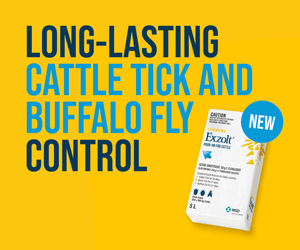Tasmanian Researchers Tackle Livestock Methane Emissions with Natural Additives
Tasmanian researchers are on a mission to reduce livestock methane emissions using natural additives, aiming to preserve livestock health, growth, and production levels. Methane emissions from animals such as sheep and cows represent a significant environmental challenge for the agriculture sector, contributing heavily to greenhouse gas emissions in Australia.
According to studies, livestock is responsible for approximately 70 percent of methane emissions resulting from Australian agriculture, highlighting the critical need for effective mitigation strategies.
A dedicated team at the Tasmanian Institute of Agriculture, including Dr. Apeh Omede, Dr. Jay Kocharunchitt, and recent honours graduate Ms. Luorui Li, is investigating the efficacy of natural feed additives. Their laboratory research simulates the fermentation process in a sheep’s stomach, revealing promising results for these additives.
The Research Focus
The study emphasizes the addition of two natural bioactive compounds: probiotic bacteria and glycoprotein. Researchers evaluated the effects of these compounds at various doses and incubation periods within a sheep stomach model.
Lead researcher Dr. Apeh Omede stated, “The goal is to reduce emissions without compromising the health and productivity of livestock.”
Dr. Omede added, “There’s an emerging focus that natural bioactive compounds are a sustainable alternative to synthetic feed additives.” Although direct methane output is not yet fully investigated, several indicators of anti-methane emission activity have emerged.
Among the key findings is a significant increase in propionate—a fatty acid produced in livestock stomachs—coupled with a reduction in the acetate-to-propionate ratio. This metabolic shift is closely associated with lower methane production and improved productivity.
Implications for Sustainable Agriculture
The research also noted an enhancement in total volatile fatty acids, suggesting more efficient fermentation in livestock stomachs overall. “The findings imply that these natural compounds may not only help in mitigating methane emissions but could also support livestock productivity,” Dr. Omede explained.
He stressed the untapped potential of naturally derived compounds in bolstering livestock sustainability amidst escalating climate challenges. “As pressures on agriculture increase, these innovations could significantly contribute to methane reduction.”
Next, Dr. Omede aims to advance this research with animal trials to validate the promising laboratory findings.
Funding and Future Outlook
This critical research project has received funding from the JM Roberts Charitable Trust. Established in 2003 by the late John Roberts, a Tasmanian farmer, the trust supports initiatives focused on environmental sustainability, agricultural innovation, and educating youth about land care. Since 2020, the trust has provided TIA with $20,000 annually, funding a total of 12 projects.
As the agricultural community continues to seek sustainable solutions, this research serves as a beacon of hope in the quest to lower methane emissions while ensuring the health and productivity of livestock.
This reformatted article includes appropriate HTML structure and enhances readability for web integration, while ensuring originality and clarity.




